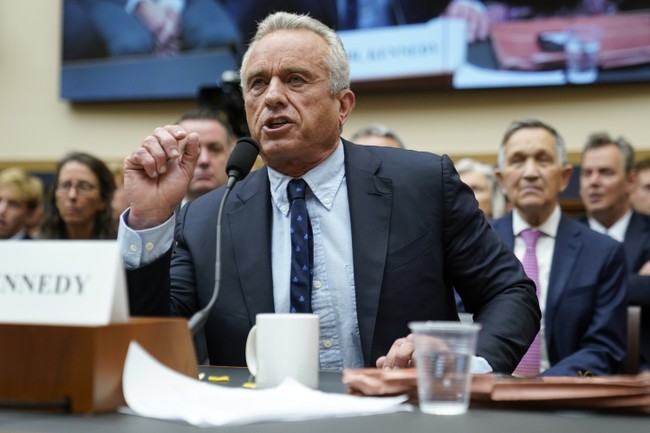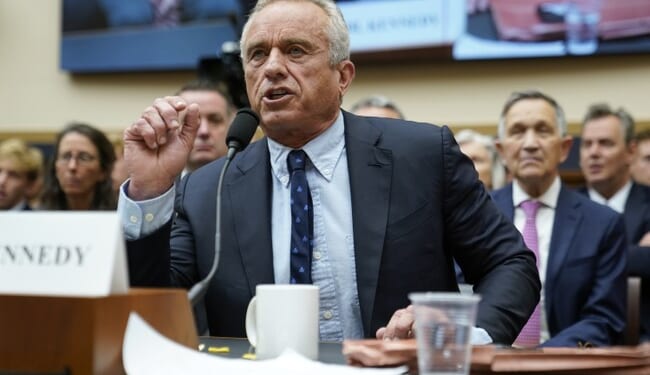
Conventional wisdom, as well as many polls, show that Robert F. Kennedy will draw more votes away from Joe Biden than Donald Trump.
It’s a perfectly logical assumption. Kennedy, the son of a Democratic icon and nephew to a legendary president, holds strongly liberal positions on the environment and backs government intervention in many areas of American life.
In the electorate of 2016, it would almost certainly have been a true statement that Kennedy would have drawn more votes from the Democrat, Hillary Clinton.
But this isn’t 2016. And the radical changes undergone by the electorate have upended conventional wisdom and scrambled party loyalties. Therein lies the conundrum of Robert F. Kennedy. Voters who once supported Democrats are far less attached to that party and the same can be said for Republicans.
Have you ever wondered what happened to all those Ron Paul supporters? Rep. Paul was a political gadfly. But he attracted a huge number of Democrats because of his anti-establishment rhetoric. Many of those Ron Paul supporters ended up voting for Donald Trump. Would they vote for Trump again or would they be more attracted to Kennedy?
Some political pros suggest that Trump shouldn’t be trying so hard to encourage people to vote for RFK. On the Bulwark’s Focus Group podcast, Republican strategist Sarah Longwell and New York Times reporter Astead Herndon discussed the question of which candidate would lose more with RFK in the race.
They discussed Longwell’s recent focus groups with voters who are torn between RFK and either Biden or Trump, and Herndon’s interactions with RFK’s supporters on the campaign trail. Longwell and Herndon have each formed a view that runs counter to the conventional wisdom: they both guess that Kennedy is likely to draw more votes from Trump than Biden in the end.
One of the strongest arguments for this view is that Biden voters are far more engaged in politics than Trump voters, leaving them open to being persuaded to “come home” by the time the election rolls around.
Another worry for the Trump campaign is that Kennedy voters look a lot more like Trump voters than Biden voters.
Political scientist Lee Drutman writes, “The simplest explanation is that RFK Jr’s campaign is channeling an anti-system, anti-two-party, anti-elite, smash-the-system energy that has grown considerably over the last decade, to the point that it can now support a third party candidate.”
These look a lot like Ron Paul voters who voted for Trump in 2016 and 2020. Would they stick with Trump or vote for Kennedy?
Ultimately, we’re still more than 6 months out from the election. This is plenty of time for the dynamics of the race to change.
The thing about the question of who Kennedy helps is that it’s a dynamic one: It doesn’t just depend on how voters are reacting to Kennedy right now. Those reactions will change over time in ways that the other campaigns will have much influence over. Longwell notes that many of the voters in her focus groups appear to be using Kennedy as a blank canvas — projecting their own desires for what an independent candidate would be onto him, even when those bear little resemblance to Kennedy’s own positions or experience. The Biden and Trump campaigns will have opportunities to paint those canvasses with arguments about who Kennedy really is.
One factor that the polls aren’t gauging right now is Kennedy’s effect on the race in individual states, specifically battleground states. It doesn’t matter if Kennedy pulls votes from Trump in red states or Biden in blue states. The difference in November will be in Michigan, Pennsylvania, Ohio, and probably North Carolina.
Kennedy may have an outsized effect in those state races because of how close the race is between Biden and Trump. Where the Kennedy vote comes from will probably decide who wins those states and thus, wins the presidency.












